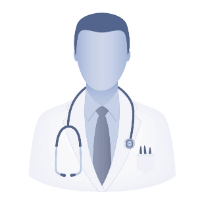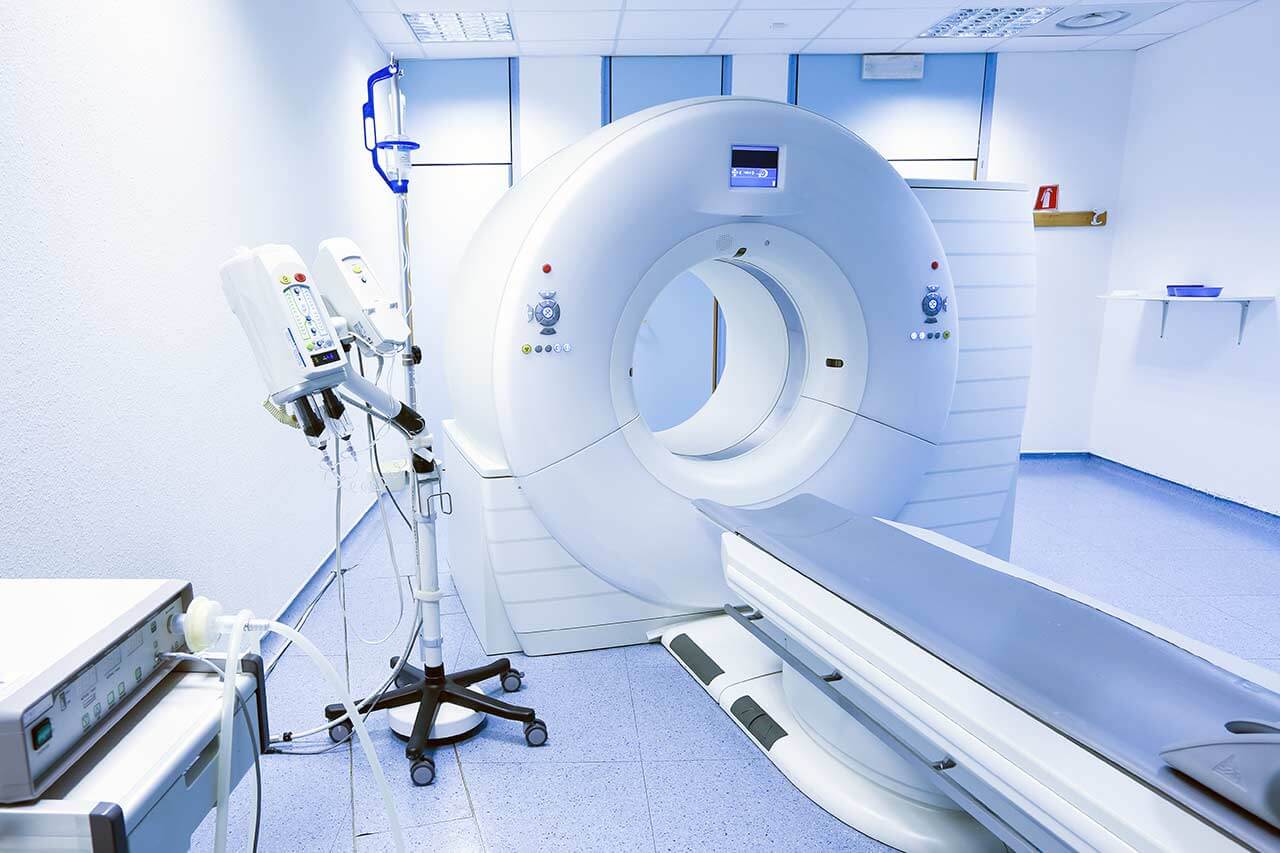
The program includes:
- Initial presentation in the clinic
- clinical history taking
- review of medical records
- physical examination
- laboratory tests:
- complete blood count
- general urine analysis
- biochemical blood test (blood glucose)
- inflammation markers (CRP, ESR)
- blood coagulation analysis (aPTT, PT, INR)
- vitamin B complex analysis
- neurological examination
- electrophysiology study (if indicated clinically):
- ENMG (electroneuromyography)
- EEG (electroencephalography)
- SEPs (somatosensory evoked potentials)
- VEPs (visually evoked potentials)
- BAEP tests (brainstem auditory evoked potentials)
- CT/MRI scan
(if indicated clinically, additional cost is 650/1200€) - nursing services
- differential diagnosis with other neurological diseases
- nursing services
- consultation of related specialists
- treatment by chief physician and all leading experts
- explanation of individual treatment plan
Required documents
- Medical records
Service
You may also book:
 BookingHealth Price from:
BookingHealth Price from:
About the department
According to the Focus magazine, the Department of Neurology at the University Hospital Heidelberg is included in the ranking of the best German departments specializing in the treatment of multiple sclerosis!
The department offers the full range of services in the diagnostics and treatment of diseases of the central and peripheral nervous system. Patients are treated in close cooperation with the Departments of Neurosurgery and Neuroradiology, which allows for an interdisciplinary, integrated approach. The department treats more than 8,000 inpatients and 23,000 outpatients every year. The department is headed by Prof. Dr. med. Wolfgang Wick.
The key areas of specialization include neuro-oncology (treatment of cancer of the nervous system), vascular neurology (treatment of stroke, including acute one), neuroimmunology (treatment of multiple sclerosis, neuromyelitis and other neuroimmunological diseases), as well as the most effective intensive care for the patients with neuropathology, in critical condition. Many patients of the department take part in clinical trials of new treatment methods and drugs, which often cause a positive trend in the treatment process.
The accurate diagnostics is ensured by the high-tech equipment of the department. The doctors of the department conduct ultrasound neurological studies, functional studies of muscles, nerves, spinal cord and brain (for example, electromyography, electroneurography, registration of evoked potentials, transcranial magnetic stimulation, tremor polygraph analysis electroencephalography for measuring electrical activities of various brain regions, cerebrospinal fluid testing, etc.).
The service range of the department includes:
- Diagnostics and treatment of motor disorders
- Parkinson's disease
- Atypical Parkinson's syndrome (multisystem atrophy, progressive supranuclear palsy, corticobasal degeneration)
- Tremor
- Dystonia
- Gait abnormalities
- Tick disorders
- Hereditary spastic spinal paralysis
- Diagnostics and treatment of neuromuscular diseases
- Polyneuropathies
- Myopathies
- Mitochondriopathies
- Diagnostics and treatment of stroke (also in the acute stage)
- Diagnostics and treatment of epilepsy
- Diagnostics and treatment of various forms of dementia
- Diagnostics and treatment of neuroimmunological diseases
- Multiple sclerosis
- Neuromyelitis
- Inflammatory processes of the optic nerve
- Autoimmune encephalitis
- Inflammatory neuropathies
- Myasthenia
- Myositis
- Rheumatologic systemic diseases
- Diagnostics and treatment of neuro-oncological diseases
- Malignant brain tumors
- Malignant spinal cord tumors
- Diagnostics and treatment of chronic headaches (migraines, cluster headaches)
- Intensive care for critically ill neurological patients
- Other diagnostic and therapeutic services
Curriculum vitae
Education
- 06/89 - 09/90 Alternative civil service, Marienhospital Bonn.
- 10/90 - 08/93 Study of Medicine, University of Bonn.
- 09/93 - 06/94 Royal College of London, UK.
- 07/94 - 08/96 University of Bonn.
- 09/96 - 05/97 Harvard Medical School, Boston, USA.
- 06/97 - 11/97 University of Bonn.
- 11/97 Preliminary admission to medical practice.
- 05/98 Doctoral dissertation defense, Institute of Neuropathology (Prof. Dr. O.D. Wiestler), University of Bonn.
Professional Career
- 01/98 - 06/99 Intern, Department of Neurology, University of Tuebingen (Head: Prof. Dr. J. Dichgans).
- 07/99 - 12/01 Research Fellow, Department of Neurology, University of Tuebingen.
- 01/02 - 12/02 Research Fellow, Department of Psychiatry, University of Tuebingen (Head: Prof. Dr. G. Buchkremer).
- 04/03 Medical Specialist in Neurology.
- 07/03 Habilitation and Venia Legendi in Neurology.
- 08/03 - 10/08 Leader of the group of young specialists in the study of hematopoietic stem cells and glioma, Baden-Wuerttemberg.
- 08/04 - 12/06 Senior Physician, Department of Neurology.
- Since 10/2005, Coordination Committee for the Study of Brain Tumors EORTC.
- 04 - 12/06 Deputy Head of the Department of General Neurology, University Hospital Tuebingen.
- Since 01/07 and up to now, Head and Professor of the Department of Neurology at the University Hospital Heidelberg.
- Head of Neurology Section, German Cancer Research Center.
- 07/07 - 06/14 Board Member of the Working Group on Neuro-Oncology of the German Cancer Society (NOA).
- Since 09/2008, Board Member of the European Association of Neuro-Oncology.
- Since 06/2009, Representative of the Group for the Study of Brain Tumors, EORTC.
- Since 03/2009, Member of the Committee of Young Professionals of the German Cancer Organization (Deutsche Krebshilfe).
- Since 01/2010, Member of the Board of Directors of the National Cancer Center (NCT).
- 01/10 - 04/14 Member of the Executive Board of the European Cancer Organization (ECCO).
- Since 06/2014, Representative of the Working Group on Neuro-Oncology of the German Cancer Society (NOA).
- Since 10/2014, Head of the Department of Neurology at the University Hospital Heidelberg.
Publications
- Since 1998, Over 250 reviewed publications.
Awards and Honors
- 1991 - 1997 Fellow of the Student Foundation of the German People (Studienstiftung des deutschen Volkes).
- 1996 Research Grant from the Beringer Ingelheim Foundation.
- 1997 Best Doctoral Dissertation at the Faculty of Medicine, University of Bonn.
- 2001 Award in Neurobiology, University of Tuebingen.
- 2003 Novartis Prize for Clinical Trials.
- 2005 Sibylle-Assmus Prize for achievements in the field of neuro-oncology.
- 2006 Pette Prize of the German Society of Neurology (DGN).
- 2009 Best Lecture by the World Federation of Neuro-Oncology, Japan.
Photo: (с) depositphotos
About hospital
According to Focus magazine, the University Hospital Heidelberg ranks among the top five hospitals in Germany!
The hospital is one of the most advanced and reputable medical institutions not only in Germany but throughout Europe. There are more than 43 specialized departments and 13 medical institutes which cover all fields of modern medicine. A distinctive feature of the hospital is the presence of unique therapeutic methods for the treatment of complex and rare clinical cases.
Due to successful clinical practice, the hospital has been holding leading positions in the international medical arena for many years. The basis for this popularity is the combination of the very latest technologies, competent specialists, and active research activities, which allows introducing of revolutionary diagnostic and treatment methods, which save lives.
In addition to the outstanding medical achievements, it is worth noting a particularly friendly and pleasant atmosphere, and respectful attitude towards the patient. Both doctors and nursing staff make every effort to meet all the needs and wishes of the patient, pay due attention to each clinical case, and have personal communication with the patient, which contributes to a positive treatment result.
Photo: (с) depositphotos
Accommodation in hospital
Patients rooms
The patients of the University Hospital Heidelberg live in comfortable single and double rooms designed in bright colors. Each room is equipped with an ensuite bathroom with a shower and toilet. The patient rooms are quite spacious, they have a table with chairs for receiving visitors. Roomy wardrobes are provided for storing personal belongings. It is possible to connect to the Internet. In addition, the hospital offers enhanced-comfort rooms with a safe, refrigerator, and upholstered furniture. Patients have 24-hour access to the services of medical personnel.
Meals and Menus
The patient and his accompanying person have a daily choice of three menus. If you for some reason do not eat all the products, you will be offered an individual menu. Please inform the medical staff about your dietary preferences prior to the treatment.
Further details
Standard rooms include:
Religion
The religious services are available upon request.
Accompanying person
During the inpatient program, an accompanying person may stay with you in a room or hotel of your choice.
Hotel
During the outpatient program, you may live in a hotel of your choice. The managers will help you choose the most suitable options.
The hospital offers a full range of laboratory tests (general, hormonal, tests for infections, antibodies, tumor markers, etc.), genetic tests, various modifications of ultrasound scans, CT scans, MRI and PET / CT, angiography, myelography, biopsy and other examinations. Treatment with medications, endoscopic and robotic operations, stereotaxic interventions is carried out here, modern types of radiation therapy are also used. The hospital offers patients all the necessary therapeutic techniques.
- Endovascular treatment of liver pathologies with LigaSureTM, Ultracision® and Habib®-Sealer devices
- Correction of chest deformities in children (Nass operation)
- Minimally invasive direct coronary artery bypass grafting
- Replacement of ascending aorta (David procedure)
- Operations using the da Vinci robotic system
These are primary lung tumors and metastases in the lungs, benign and malignant liver pathologies, thyroid pathologies, gastroesophageal reflux disease, heart rhythm disturbances and heart failure, infertility, fibromyalgia, damages and pathologies of large joints, polyneuropathy and other diseases.
- Thoracic surgery
- Cardiac surgery
- Urology
- Orthopedics and traumatology
- Obstetrics and gynecology
The hospital's team consists of more than 13,000 highly qualified employees




